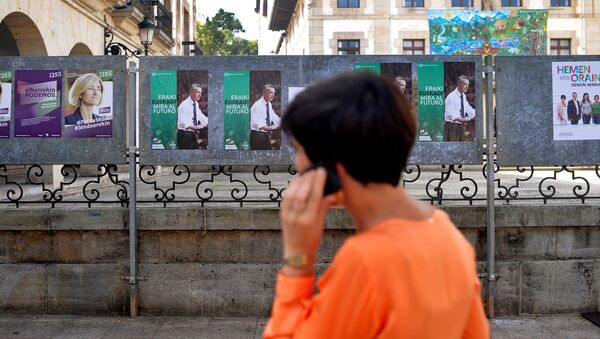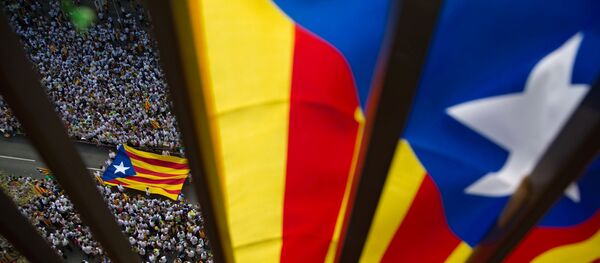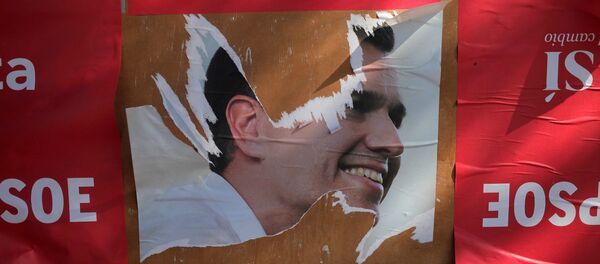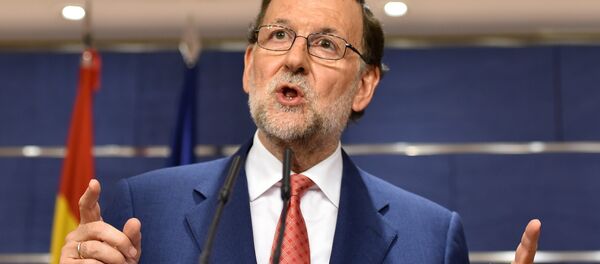MOSCOW (Sputnik) — The elections have been brought forward to September from the previous October date after Basque leader Inigo Urkullu said the regional vote must be moved away from a potential new general election amid a climate of instability in national politics. The general election may be called if Spain's leading parties fail to form a coalition government.
En Marea, which is linked to the left-wing Podemos party, as well as the Galician Nationalist Bloc and the Citizens party, are also competing. Most opinion polls, such as those conducted by Sondaxe, project the PP affiliate to gain over 40 percent of the votes, followed by En Marea with over 20 percent. Socialists are likely to drop to third place with less than 20 percent for the first time in over a decade, ousted by their far-left rivals. The nationalists are projected to take some five percent of the vote, while the Citizens are expected to receive the support of around four percent of the Galician population.
Local PP and PSOE affiliates are looking to get around 10 percent each. PSOE is facing rivalry from the local Podemos affiliate in this region as well, losing almost half of its support compared to the 2012 election. Polls predict Elkarrekin Podemos to garner around 17 percent of the vote. Support for the remaining parties is in the three-percent zone.
In June, Rajoy's PP won the most seats in the parliamentary election, with PSOE finishing second. None of the political forces have an absolute majority and thus cannot form a government on their own.
Coalition talks resumed in the wake of the vote and Spain could face the third consecutive elections this year if they fail.





